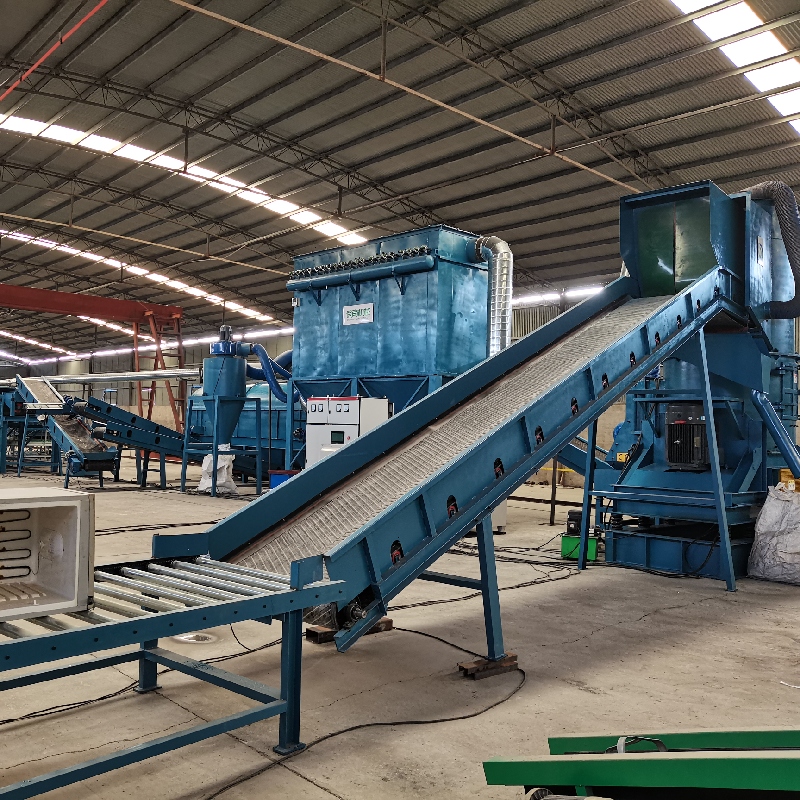
12 月 . 03, 2024 18:21 Back to list
The Importance of Solid Waste Recycling Plants
In today’s rapidly industrializing world, the management of solid waste is becoming increasingly critical. With urbanization and population growth, cities are generating more waste than ever before, leading to significant environmental challenges. One of the most effective solutions to tackle this pressing issue is the establishment of solid waste recycling plants.
Solid waste recycling plants play a pivotal role in waste management by promoting the recycling and recovery of materials. They are designed to process various types of waste, including plastics, metals, glass, and organic materials. By efficiently sorting and processing these materials, recycling plants help reduce the volume of waste sent to landfills, which in turn decreases the environmental impact associated with waste disposal.
One of the primary benefits of solid waste recycling plants is their contribution to resource conservation. Natural resources are finite, and the extraction and processing of raw materials can lead to significant environmental degradation. Recycling helps alleviate this pressure by allowing for the reuse of materials. For instance, recycling one ton of paper can save approximately 17 trees, 7,000 gallons of water, and energy equivalent to a month’s worth of electricity for an average home. This highlights the critical importance of recycling in preserving our planet’s resources.
Moreover, solid waste recycling plants contribute to the reduction of greenhouse gas emissions. Landfills are a significant source of methane, a potent greenhouse gas that contributes to climate change. By diverting waste from landfills and recycling materials, these plants can help mitigate the release of harmful gases into the atmosphere. For example, recycling one ton of aluminum saves more than 9 tons of carbon dioxide emissions compared to producing it from raw materials. This climate-friendly approach is essential as the world confronts the consequences of global warming.

Another significant advantage of solid waste recycling plants is their role in job creation and economic development. The recycling industry is labor-intensive, and recycling facilities typically create more jobs per ton of waste processed compared to landfilling. According to the National Recycling Coalition, recycling and reuse activities in the United States accounted for 1.17 million jobs and generated $236 billion in revenue in 2013. With the expansion of recycling operations, the potential for economic growth and job creation is substantial. This is particularly important in today's economy, where many regions are looking for ways to boost employment and stimulate local economies.
Furthermore, solid waste recycling plants raise awareness about environmental responsibility. By promoting recycling programs in communities, these plants educate the public about the importance of waste reduction and the benefits of sustainable practices. Educational initiatives can encourage individuals and businesses to adopt more environmentally friendly behaviors, such as reducing waste at the source, reusing materials, and making more informed decisions about product consumption. A culture of recycling nurtured by these plants can lead to lasting change in public attitudes toward waste management and environmental stewardship.
The technology used in solid waste recycling plants is also evolving rapidly. Advanced sorting technologies, such as automated systems employing artificial intelligence, are improving the efficiency of material recovery. These innovations enable more effective separation of recyclables from non-recyclables, reducing contamination and increasing the quality of recycled materials. As technology continues to advance, solid waste recycling plants will become even more efficient, further enhancing their positive impact on the environment.
In conclusion, solid waste recycling plants are crucial to addressing the challenges posed by growing waste generation in our society. They not only facilitate resource conservation and reduce greenhouse gas emissions but also create jobs and foster community awareness about sustainability. As we move toward a more environmentally conscious future, investing in and expanding solid waste recycling plants will be essential for achieving a circular economy, where materials are continually reused and waste is minimized. It is a collective responsibility to support these initiatives for a cleaner, healthier planet for future generations.
Latest news
Unveiling the Power of Eddy Current Separator
NewsSep.25,2024
Transform Your Home Recyclin:home metal shredder
NewsSep.25,2024
The Future of Waste Management with Recycling Line Picker
NewsSep.25,2024
The Benefits of a Metal Recycling Plant
NewsSep.25,2024
Revolutionize Material Separation with Onwang Technology
NewsSep.25,2024
Innovative Waste Management: Unveiling the MSW Sorting Plant
NewsSep.25,2024